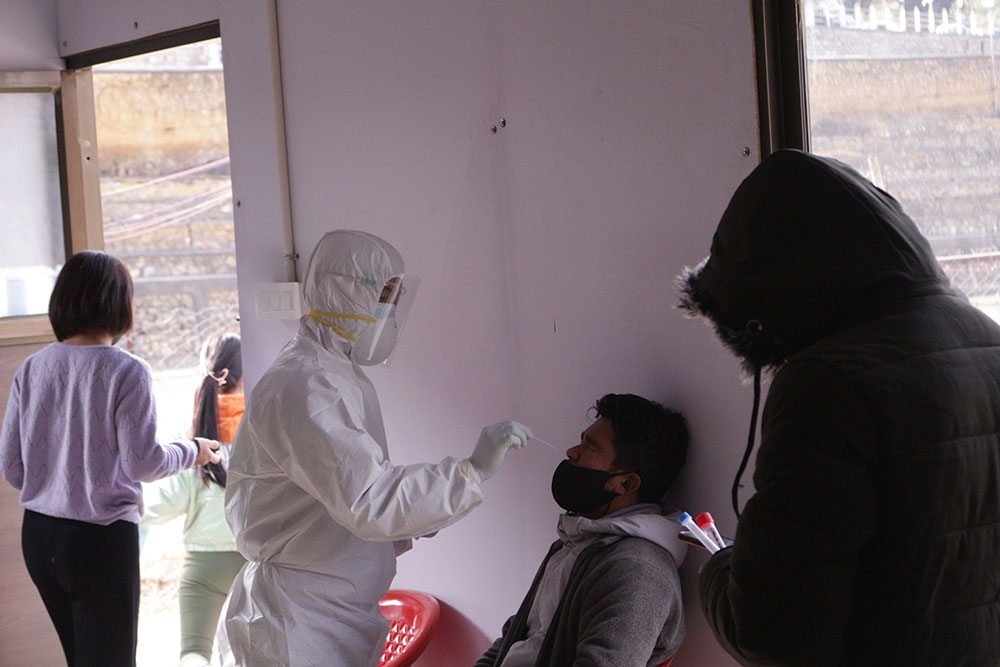Dechen Dolkar
With the massive omicron outbreak in the country, many are concerned about the accuracy of test kits, especially rapid antigen.
Both the rapid antigen and RT-PCR tests are being carried out for detecting the new variant.
A member of the Technical Advisory Group (TAG), Dr Sonam Wangchuk, said that the test kits were upgraded by the company with the evolution of the virus.
“The test kits that we use are effective in detecting the omicron,” he said, adding there was no false report so far.
He said that the sensitivity of RT-PCR and antigen tests to detect the Omicron variant remain similar to the previous variant.
He said that the antigen test will be negative for most contacts as those contacts would be at the early stage of infection because the sensitivity of the antigen test is low compared to RT PCR. Therefore, we never recommend antigen tests to test contacts.
He said that the RT-PCR test is the gold standard and it would detect the case at the very early stage because of its high sensitivity.
“No need to change protocol as of now.”
However, many health experts in the world are also questioning the accuracy of rapid antigen tests.
Rapid antigen tests, also called lateral flow tests, detect viral proteins from SARS-CoV-2 in mucus from a person’s nose or throat.
TheScientist recently stated that reports in the last couple of weeks had prompted a conversation among scientists and public health experts as to whether currently available forms tests are effective at picking up cases of omicron.
It also stated that a study by researchers in the US this month reported that two widely used rapid antigen tests (Abbott BinaxNOW and Quidel QuickVue) seemed to lag by several days in the detection of Omicron cases; some of the participants unwittingly transmitted the virus to other people between testing negative on rapid antigen tests.
Test kits and PPE stock
The ministry of health claims that as of now there are adequate stock of Personal Protective Equipment (PPE) and test kits.
The officials from the ministry said that the stock status and the consumption trends of PPEs in all hospitals were being monitored; when the stock falls below the minimum reorder level, the additional supply of the items from Medical Store and Distribution Division (MSDD), Phuentsholing, are initiated.
The official said that sometimes, when the distribution gets delayed from MSDD due to non-availability of vehicles in the station, the items are mobilised immediately from nearby hospitals and replenished when the stock is delivered.
The officials said that considering the current consumption/use of PPEs by the hospitals, the existing stock inclusive of stock at MSDD and Hospitals will last a minimum of six months.
Dr Sonam Wangchuk said that currently RCDC has a stock of more than 100,000 RT-PCR tests, more than 1,30,000 rapid antigen tests, and more than 300,000 viral transport media (VTM). VTM is a test kit for sample collection.
He said that there are also enough stocks of test kits in the district hospitals.
The ministry of health announced that for the people in Thimphu, Paro, Haa, Gasa, Chukha,Trongsa, Bumthang,Dagana, Sarpang,Tsirang,Samtse and Zhemgang , the dzongkhags that have undergone 72 hours of blackout, second testing will be done today.


